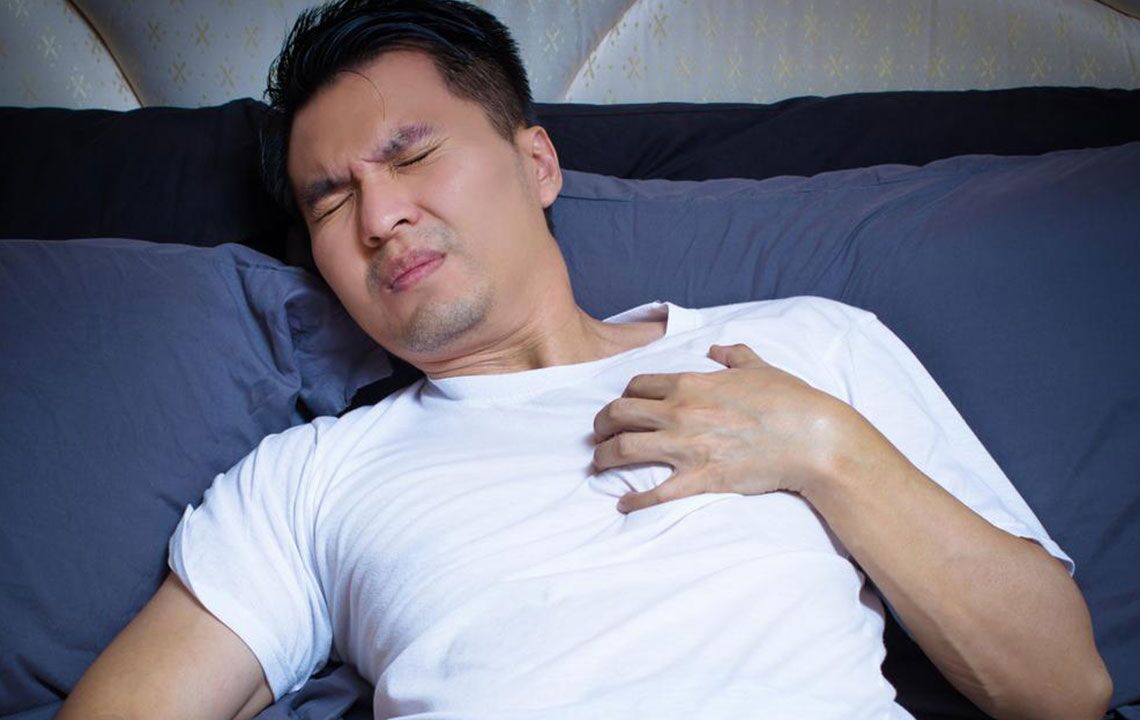Male Breast Cancer – What You Should Be Aware Of
Breast cancer among women is commonly known around the world. The rate of breast cancer in women is much higher with 1 in every 12 women suffering from this disease. While breast cancer is something that most of us associate with women, little do we know that men too can be victims of this disease.
Male breast cancer is rare, but it does account for about 1% of all breast cancers.
Men possess rudimentary breasts or non-functioning breast tissues. This means that, just like women who have breast cancer, male breast cancer involves the uncontrolled growth and potential spread of some of the cells in the breast tissue.

How common is male breast cancer?
As we know that male breast cancer is relatively rare, as opposed to breast cancer in women. Breast cancer is about 100 times more common in women, and an adult male’s lifetime risk of developing this disease stands at about one in every thousand men. The rate of breast cancer in men has remained stable over the last 30 years.
What are the symptoms of male breast cancer?
The symptoms of male breast cancer are more or less similar to breast cancer symptoms in women.
Here’s a list of the main symptoms of male breast cancer.
- You will see changes in the skin covering your breasts. This includes dimpling or puckering of your skin or nipple, redness of the area on and around your breasts and scaling of the skin covering your breasts or your nipple.
- One of the most common symptoms of male breast cancer is a painless lump or the thickening of your breast tissue, right under your nipple.
- Discharge from the nipple, which might have a foul odor and in some cases thick and bloody.
- In some cases, the nipple might go inwards, or get inverted.
- The areola, which is the small ring of color that is the center of the nipple, might develop sores.
- The sores might develop on the nipple too.
- The lymph nodes under the arm might get enlarged.
You should know that if both your breasts are enlarged, it is not usually a sign of male breast cancer. However, it is important to consult your doctor in case of any abnormality.
What causes male breast cancer?
The factors causing male breast cancer aren’t known yet, but you can recognize them based on a number of risk factors.
- Constant exposure to radiation is one of the most common causes of cancer. So this is also most likely the cause of male breast cancer. However, for this to happen, you have to be exposed to radiation for a relatively long time. This is one of the reasons why doctors advise people against keeping their phones in the front pockets of their shirts.
- Gynecomastia is a condition which results in the enlargement of breasts. With the onset of drug use, hormone treatments, and infections, this might turn into breast cancer in men.
- If your relative is suffering from breast cancer, then the chances of you being a victim are higher as opposed to someone who doesn’t have a family history of this disease.
- Estrogen plays a vital part in male breast cancer. 9 out of 10 men who have male breast cancer have estrogen receptors in their cell membranes. These estrogen receptors allow molecules of estrogen to bind the cancer cells. This, in turn, stimulates the growth and multiplication of cancer cells.
- Severe liver diseases like liver cirrhosis can cause male breast cancer.
- Klinefelter’s syndrome, a disorder where baby boys are born with higher than normal levels of estrogen, are at a major risk of developing male breast cancer.
- If there has been a mutation in the genes, then this plays a significant role in male breast cancer. You can find a mutation known as BRCA2 in over 5% of men who have male breast cancer.
Diagnosis of male breast cancer
If you find symptoms of male breast cancer like a lump or nipple discharge, then consult your doctor as soon as possible.
The doctor will do a biopsy, an ultrasound or a mammography to identify and diagnose your condition.
What is the best treatment for male breast cancer?
Owing to the fact that breast cancer in men is so uncommon, diagnosis is done only at the later stages in most cases. If diagnosed at the early stages, the odds are in your favor, as treatment is more effective at this stage. The treatment for male breasts cancer is almost the same as that for female breast cancer.
Here’s a list of the different treatment options for male breast cancer.
- Mastectomy : This is a surgery which involves the removal of the entire breast. If the cancer has spread, then one or two of the lymph nodes are taken too.
- Chemotherapy : In chemotherapy, drugs are injected or given orally, to attack the cancer cells. This is the primary treatment for men who are in the advanced stages of breast cancer.
- Radiation therapy : It is usually done after a mastectomy. Radiation is done to kill off any remaining cells that may cause a relapse in the long run.
If you experience the symptoms of male breast cancer and undergo a treatment, even after the treatment, make sure you eat healthy food, include adequate exercise in your daily routine, and follow up with your doctor whenever required.

